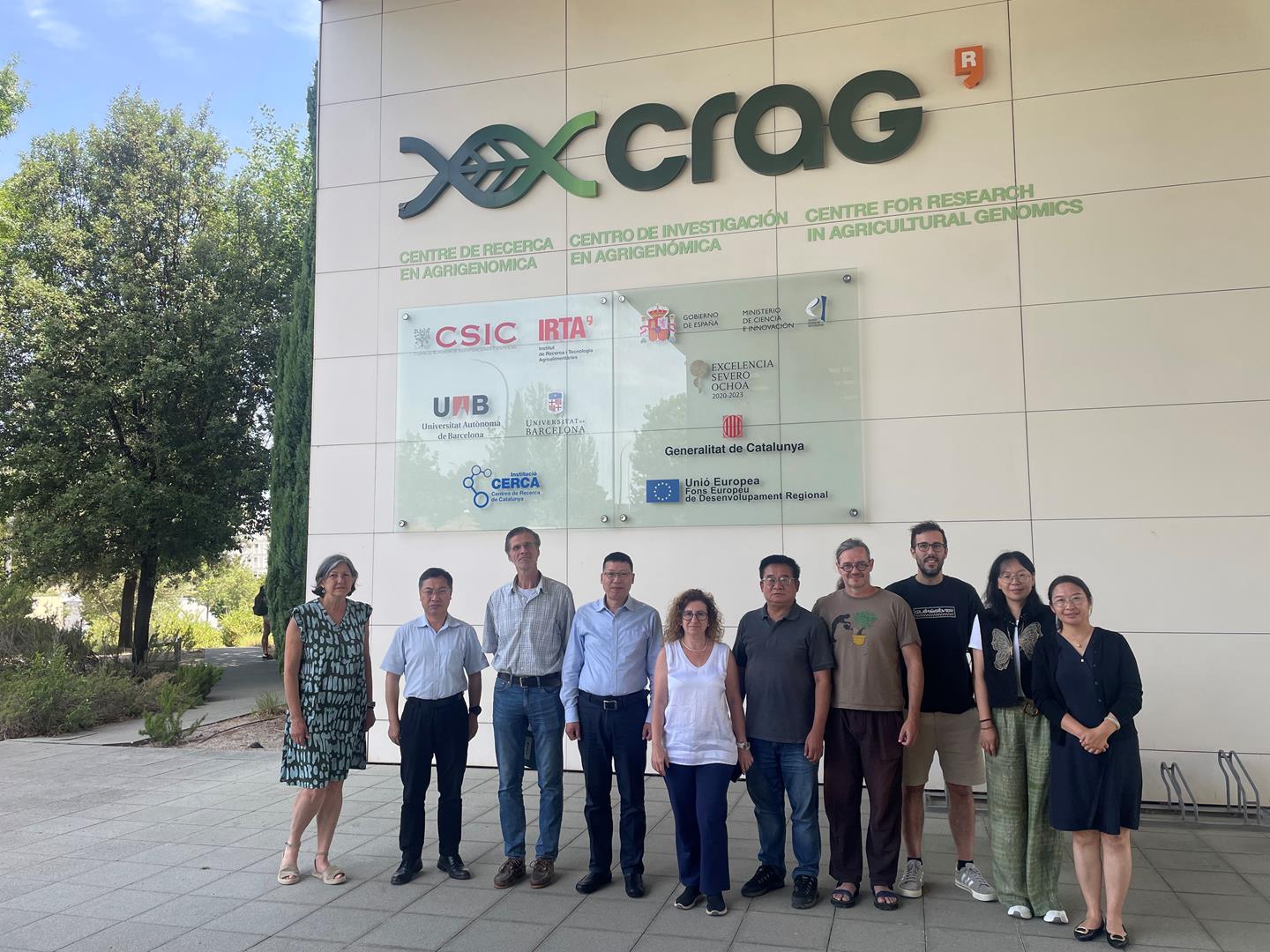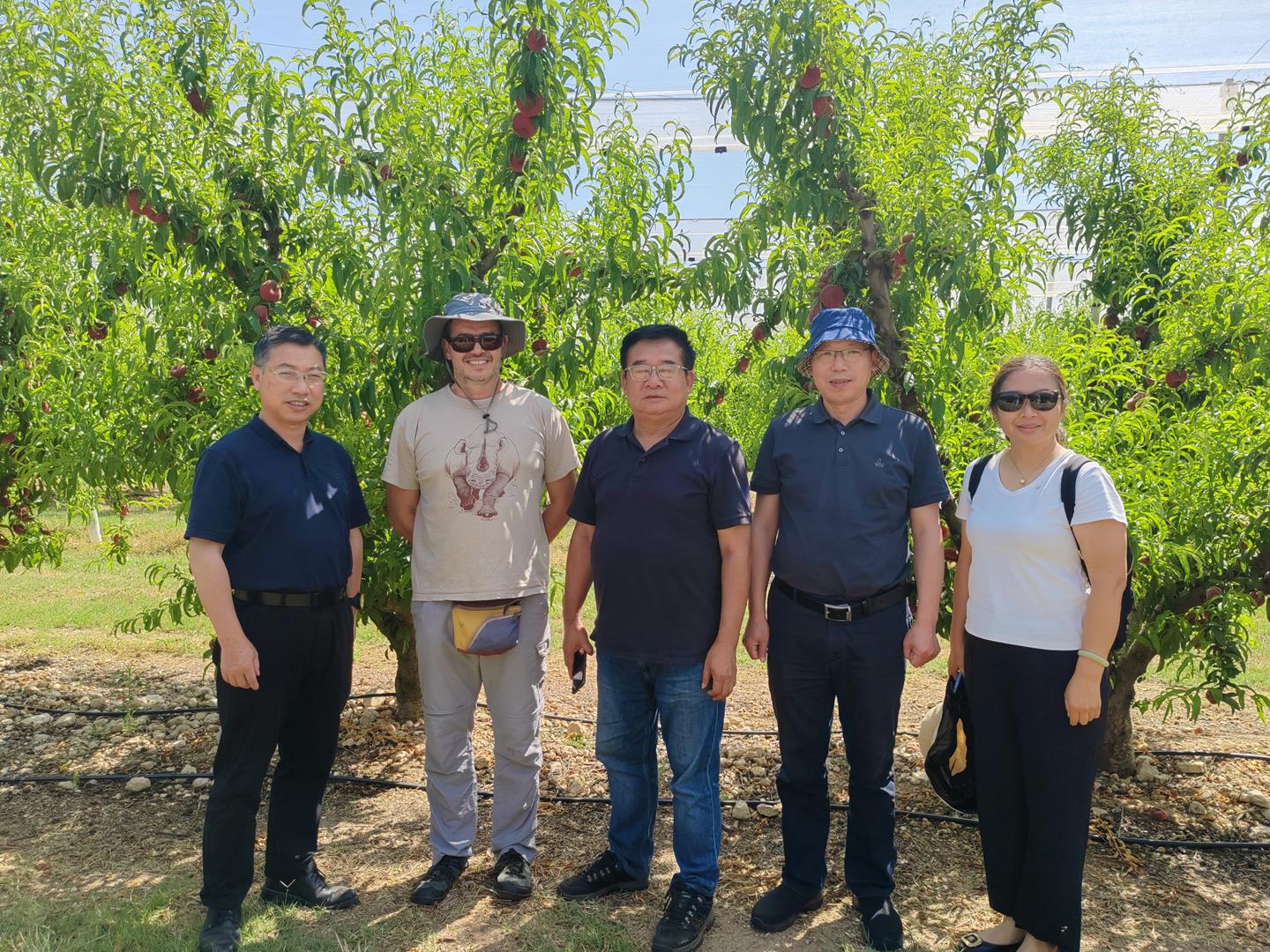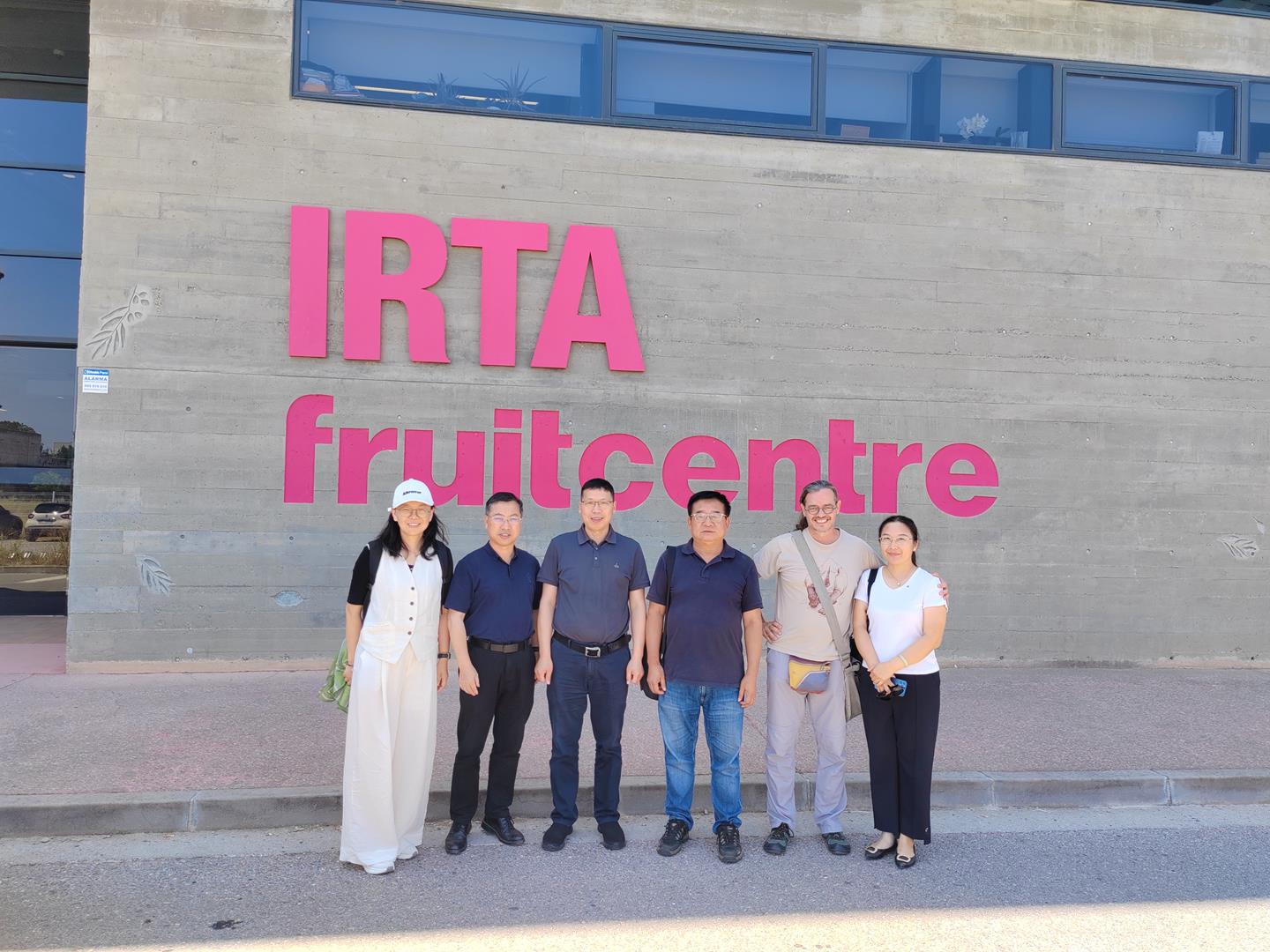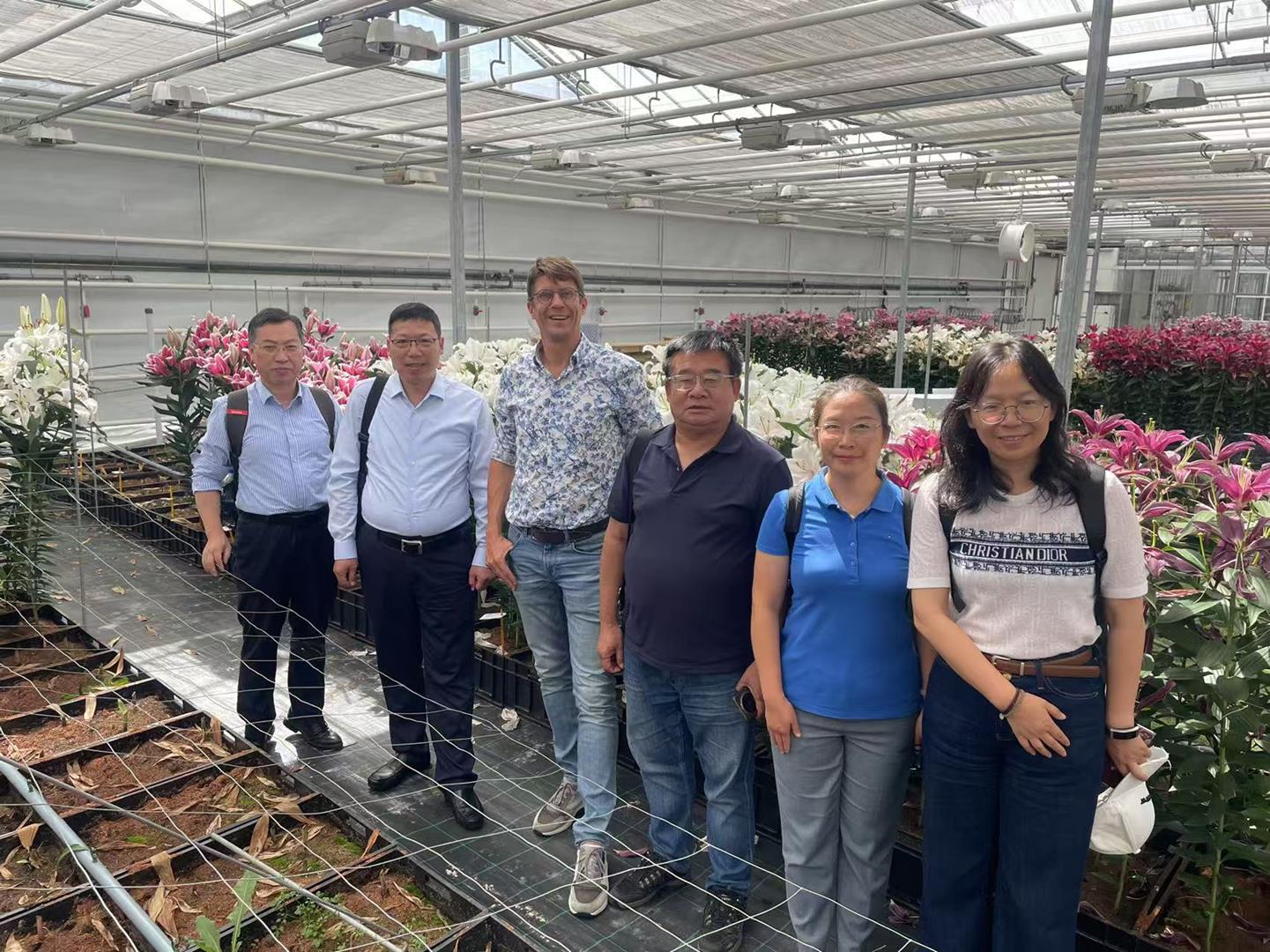Researchers from SAAS Visit Spain and the Netherlands
In order to strengthen international cooperation and exchanges in fields such as horticultural plant genomics and protected horticulture cultivation, recently, at the invitation of the Institut de Recerca i Tecnologia Agroalimentàries (IRTA) of Catalonia, Spain, and Wageningen University & Research (WUR) of the Netherlands, a delegation of five led by Li Linfeng, Director of the Personnel and Organization Division, visited Spain and the Netherlands. During the trip, the delegation discussed bilateral cooperation agreements, engaged in in-depth exchanges on topics including joint laboratory co-construction, scientific research cooperation content, and talent cultivation, and reached multiple consensus points for collaboration.



At the Animal and Plant Genomics Research Division of IRTA, the delegation held academic exchanges with the Rosaceae Plant Genomics Research Team on advancements in genomic research of horticultural plants such as peaches and apples, applications of artificial intelligence in fruit tree breeding, osmotic adjustment, and pan-genomic analysis. Experts from the Fruit Center provided detailed introductions to fruit tree breeding, post-harvest grading and packaging of fruits and vegetables, controlled atmosphere storage, preservative development, and sensory quality analysis. Li Linfeng highlighted the SAAS's basic developments in discipline construction and international cooperation, affirmed the existing cooperative foundation between the two sides, expressed expectations for deepening and expanding broader cooperation areas, and further explored laboratory construction and specific cooperation directions. Subsequently, the delegation visited IRTA’s public research platforms for multi-omics analysis (genomics, metabolomics, etc.), inspected the peach germplasm resource nursery, new variety demonstration base, and the Mollerussa Fruit Tree Breeding Base.
At Wageningen University, the delegation exchanged views with Dr. Ji Yongran from the Department of Plant Sciences, gaining in-depth understanding of the laboratory’s research directions and international cooperation models in horticultural physiology, artificial intelligence model construction, and protected horticulture development. They also explored collaborations in talent cultivation and technical training. Later, the delegation investigated production bases for strawberries, lilies, tulips, and other crops for on-site research.

